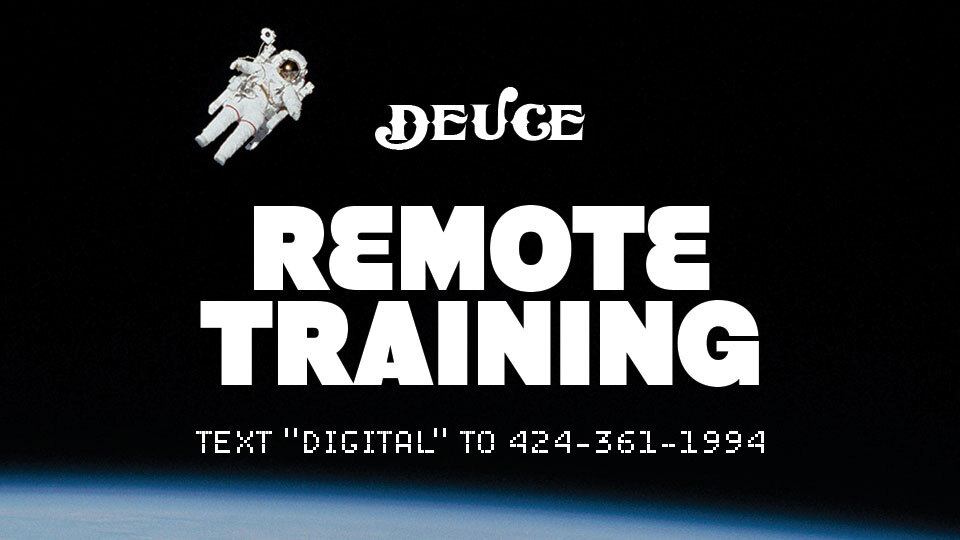
At some point in this blog relationship we have, you may have found some agreement with my feelings that doing the things in your life that you’re more purposefully driven about is vital to you and your community. I continually suggest quitting stupid lifestyle that many would call normal and doing cool stuff instead. We not only should, we must, chase our dreams. Yet, you might say, “Sure, chasing your passion is better for everyone involved. But, that’s way easier said than done, right?”
Right.
That’s the point. Well, at least in part it’s the point. Things don’t quite land with the same impact when they come easy. In fact, I’d argue that being wrong about what to do with your time here on Earth is precisely part of the process. This worldview that I’m proposing you isn’t requisite of “nailing it” on the first try. That’d be silly.
That would mean that the first thing you’re passionate as a child or young adult would have to have incredibly accurate or, well, according to what I’ve said in the past, it may seems as though you’re wasting your time, your community’s time, and committing one of the biggest sins of humanity by not pursuing your distinct purpose. Is that what we’ve learned, though?
I don’t think so.
Anecdotally, I’ve lived this scenario several times in micro cycles. I was wrong over and over again. Hell, you could argue that I still haven’t figured out what the hell I’m supposed to do here. Yikes, and I’m writing about this stuff?
Bear with me.
I was hell bent on becoming a professional baseball player from childhood. Every decision I made spoke to this lofty goal. Along the way I experienced all of the beautiful things that only one with such a committed pursuit could enjoy about that. I was held accountable to my goal with real results.
I lived and breathed these questions on a daily basis: Do you throw hard enough? Hit hard enough? Know the game well enough? Are your grades good enough? Strong enough? Personable enough? Organized enough? What else could you be doing right now to help yourself win?
According to my goals, my two weeks in Double A San Antonio for the San Diego Padres is just a long-winded way of saying, “Close, but no cigar.” Does that mean I’m out? I’m done? See you next lifetime? Does it mean that I guessed my purpose wrong?
Maybe.
Looking back, these types of failures happened all the time. Almost every time I made a specific goal, I got everything out of the pursuit (most literally everything) except the specific goal.
I wanted to get drafted out of high school, and didn’t. Yet, I got plenty of negotiations and relationships with Major League teams, while pursing my game to a level that people that don’t want to get drafted can’t reach.
I thought Stanford was the perfect place for the best catcher who also had great grades could play after seeing them in the College World Series. Naturally, receiving a scholarship to Stanford became another goal of mine. I showed up to their prospect camp on crutches and never had a conversation, while I flew home with my best friend. He walked away with a scholarship.
No dice.
The next year, Georgia Tech was in Omaha for the College World Series and they had a savvy defensive catcher from Westlake High School not far from my hometown named Mike Nickeas. My decision was made. I’d do anything to be a… Yellow Jacket? At the time, I remember knowing I’d play there, so I figured I better look at their website to see what their mascot was.
This one was close. They liked me. The recruiting coordinator at the time had me fly out, and right up until the moment I sent a follow up email to check on things, I figured I was a Yellow Jacket. Unfortunately, he told me though I was allegedly a “sure fire D1 catcher” that’d they were going to sign a guy from Georgia instead.
That’s odd, I thought. Who could be better than me? Future Major League All Star Matt Wieters, I guess.
Swing and a miss.
Of course, the other way to look at the story is like a failure-less, slam dunk. I signed early with the University of San Diego, a program that made more gains in those four years than any other program in the country, played all four years, landed in the Top 5 in the country, got the right business degree, landed the leadership studies minor that I didn’t know existed, and got drafted by the local San Diego Padres. Peachy, right?
That depends on how you look at it.
These examples are everywhere. Though the topic of this conversation is ruthless. This kind of “You must do the thing that you’d bleed for. Do the hard thing, no matter how impossible it may seem, because if you don’t you’re a coward and a detriment to yourself and the world around you,” is a call to action that seems incredibly unforgiving. In some way it is. Except, nowhere in this conversation are we attaching results to the pursuit.
Hear me clearly. The consequences of undermining and sandbagging your life are of the greatest magnitude. However, the consequences of pursuing purpose and true passion and failing are nominal; often non-existent.
I’d like to caution you, the reader, here. A weak mind would look at the above statement as a loophole. It looks like an opportunity to put some pursuits that “would be nice to have” on paper, expect to fail, and walk into that failure.
This approach is neither an authentic pursuit nor does it come with any of the advantages described in this text. In fact, it’s in the “all in” commitment that the juice of the experience lays. Giving yourself real or perceived outs or exit strategies pulls the rug out from under the type of resilience, work ethic, and pursuit of excellence that comes with a commitment that is reinforced with the internal commitment of purpose.
If, then, this concept that says we are responsible for seeking an existence of total purpose at the highest level is really about the pursuit and much less about the final destination, then you can theoretically get it wrong every time. You think you’re the best version of yourself as a English teacher abroad, yet after two years in the field realize you had it wrong? It’s important to understand that it is neither time wasted nor a failure of the responsibility outlined in this text. The caveat here, of course, being that you went abroad hell bent on being the best English teacher the country has ever seen with an effort that could only be fueled by a fire in your belly that someone born to teach English abroad could.
This distinction that we can “get it wrong,” evolve, and change course can, in some ways, provide some relief to the ruthlessness of the responsibility I’m suggesting we all have. On the flip side of the same coin, it only means we’re never really “done.” Even the greats in sport, business, and the arts must feel the burden of responsibility to evolve and apply these principles after their current reign is over.
Logan Gelbrich
@functionalcoach
11/18/15 WOD
Complete the following for time:
10 rounds:
8 Back Squats (225/155)
-Rest 1 minute-
**Mark total time

